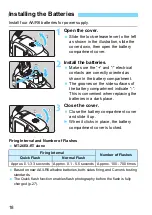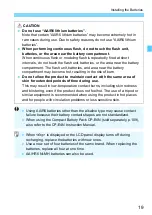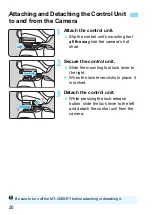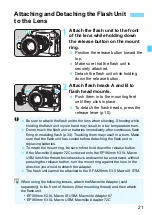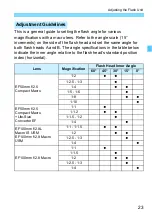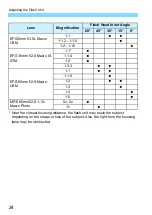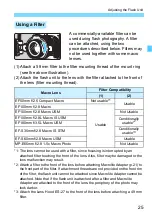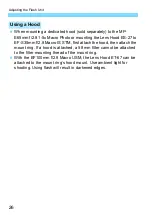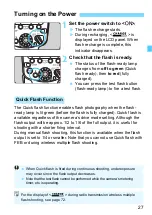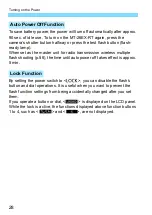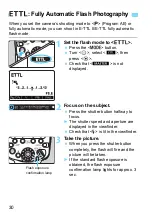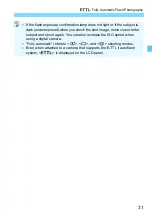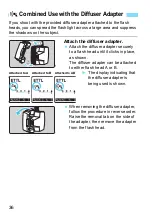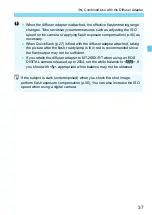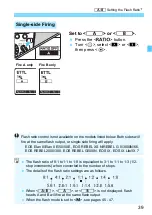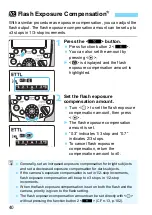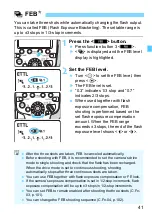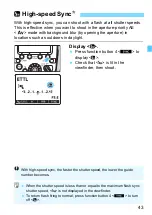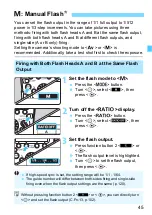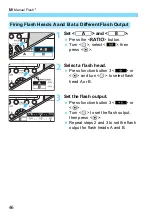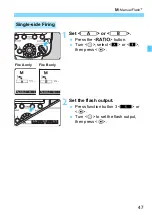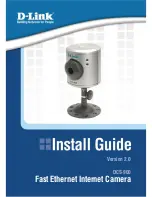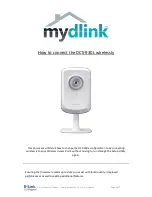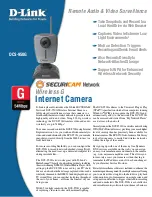
32
Simply by setting the camera’s shooting mode to <
f
> (aperture-
priority AE) or <
a
> (manual exposure), you can execute macro flash
photography using E-TTL II/E-TTL autoflash.
When the shutter speed is manually set with the shooting mode set to <
s
>
(Shutter-priority AE), the aperture will be set automatically. However, this is not
recommended because the aperture cannot be set manually.
If you use the <
Z
> or <
Y
> shooting mode, the result will be the same as
using the <
d
> (Program AE) mode.
1/X sec. is the camera’s maximum flash sync speed.
E-TTL II/E-TTL Autoflash by Shooting Mode
f
You can perform flash photography while obtaining a standard
exposure of both the main subject and background while considering
the depth of field.
Select this mode when you want to set the aperture manually. The
camera will then automatically set the shutter speed, matching the
aperture to obtain the standard exposure based on the metering of the
camera. For low-light scenes, a slow sync speed will be used to obtain
the standard exposure for both the main subject and background. The
standard exposure for the main subject is obtained with the flash light,
while the standard exposure for the background is obtained with a long
exposure using a slow shutter speed.
Since a slow shutter speed will be used for low-light scenes, using a
tripod is recommended.
If the shutter speed blinks, it means that the background exposure
will be underexposed or overexposed. Adjust the aperture until the
shutter speed stops blinking.
a
Select this mode if you want to set the shutter speed and aperture
manually.
Standard exposure of the main subject is obtained with the flash light.
The exposure of the background changes according to the shutter
speed and aperture combination you set.
Flash Sync Speeds and Apertures by Shooting Mode
Shutter Speed
Aperture
d
Automatically set (1/X sec. to 1/60 sec.)
Automatically set
f
Automatically set (1/X sec. to 30 sec.)
Manually set
a
Manually set (1/X sec. to 30 sec., Bulb)
Manually set

